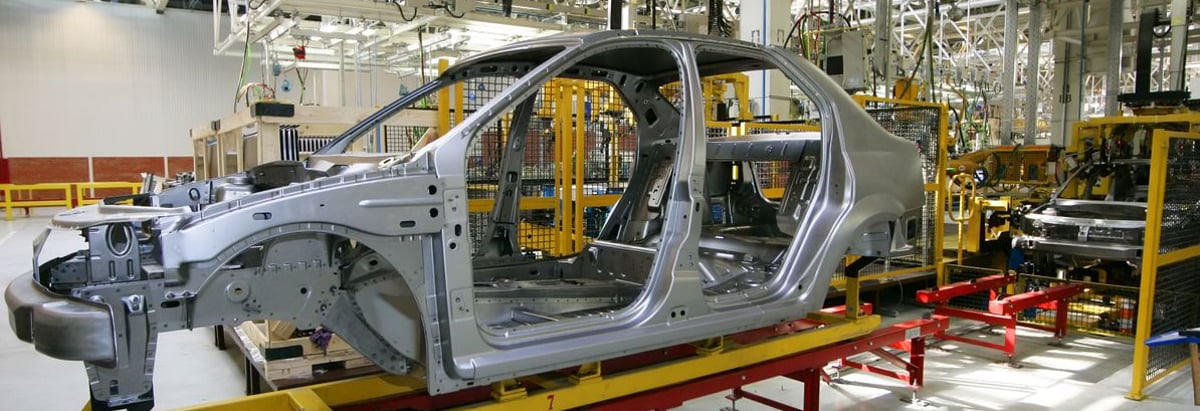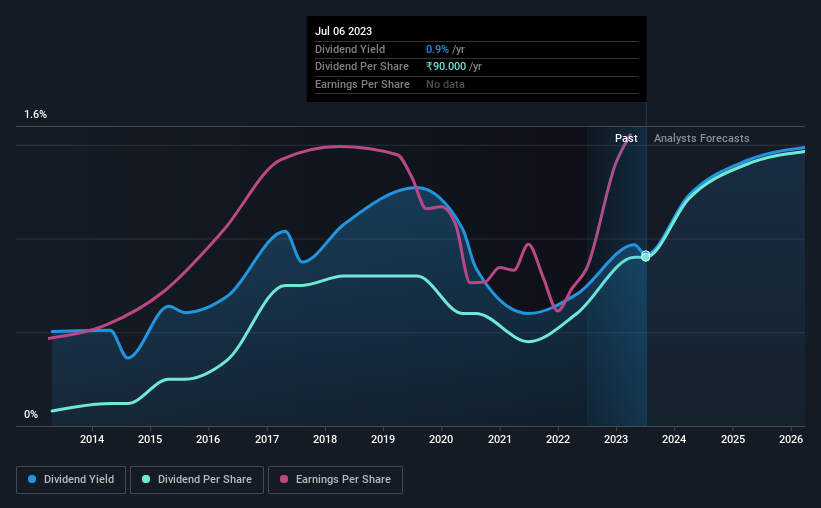Maruti Suzuki India's (NSE:MARUTI) Dividend Will Be Increased To ₹90.00

Maruti Suzuki India Limited (NSE:MARUTI) has announced that it will be increasing its dividend from last year's comparable payment on the 6th of September to ₹90.00. Although the dividend is now higher, the yield is only 0.9%, which is below the industry average.
See our latest analysis for Maruti Suzuki India
Maruti Suzuki India's Dividend Is Well Covered By Earnings
If it is predictable over a long period, even low dividend yields can be attractive. But before making this announcement, Maruti Suzuki India's earnings quite easily covered the dividend. The business is earning enough to make the dividend feasible, but the cash payout ratio of 94% shows that most of the cash is going back to the shareholders, which could constrain growth prospects going forward.
The next year is set to see EPS grow by 58.0%. If the dividend continues on this path, the payout ratio could be 24% by next year, which we think can be pretty sustainable going forward.

Dividend Volatility
Although the company has a long dividend history, it has been cut at least once in the last 10 years. Since 2013, the dividend has gone from ₹8.00 total annually to ₹90.00. This means that it has been growing its distributions at 27% per annum over that time. It is great to see strong growth in the dividend payments, but cuts are concerning as it may indicate the payout policy is too ambitious.
Maruti Suzuki India May Find It Hard To Grow The Dividend
With a relatively unstable dividend, it's even more important to evaluate if earnings per share is growing, which could point to a growing dividend in the future. Although it's important to note that Maruti Suzuki India's earnings per share has basically not grown from where it was five years ago, which could erode the purchasing power of the dividend over time. If Maruti Suzuki India is struggling to find viable investments, it always has the option to increase its payout ratio to pay more to shareholders.
In Summary
Overall, we always like to see the dividend being raised, but we don't think Maruti Suzuki India will make a great income stock. The low payout ratio is a redeeming feature, but generally we are not too happy with the payments Maruti Suzuki India has been making. We would probably look elsewhere for an income investment.
It's important to note that companies having a consistent dividend policy will generate greater investor confidence than those having an erratic one. At the same time, there are other factors our readers should be conscious of before pouring capital into a stock. As an example, we've identified 1 warning sign for Maruti Suzuki India that you should be aware of before investing. Looking for more high-yielding dividend ideas? Try our collection of strong dividend payers.
New: Manage All Your Stock Portfolios in One Place
We've created the ultimate portfolio companion for stock investors, and it's free.
• Connect an unlimited number of Portfolios and see your total in one currency
• Be alerted to new Warning Signs or Risks via email or mobile
• Track the Fair Value of your stocks
Have feedback on this article? Concerned about the content? Get in touch with us directly. Alternatively, email editorial-team (at) simplywallst.com.
This article by Simply Wall St is general in nature. We provide commentary based on historical data and analyst forecasts only using an unbiased methodology and our articles are not intended to be financial advice. It does not constitute a recommendation to buy or sell any stock, and does not take account of your objectives, or your financial situation. We aim to bring you long-term focused analysis driven by fundamental data. Note that our analysis may not factor in the latest price-sensitive company announcements or qualitative material. Simply Wall St has no position in any stocks mentioned.
About NSEI:MARUTI
Maruti Suzuki India
Engages in the manufacture, purchase, and sale of motor vehicles, components, and spare parts primarily in India.
Excellent balance sheet with acceptable track record.


